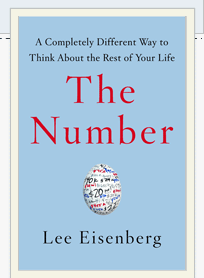|
|
|
|
|
|
|
|
|

 |
||
|
|
||
|
|
|
|
|
|
Excerpts: Prologue | Chapter 1 | Chapter 2 | Chapter 14 | Appendix
Excerpted from
THE PROLOGUE:
Making Hay
In the early spring of 2004, I ended a five-year stint at a job I never could have imagined, in a part of the world that was never part of the plan. The unexpected detour started with a phone call on a cold winter afternoon. At that moment I was half in, half out of the workplace-downshifting, as it's called these days. My wife, Linda, our two young kids, and I were living a comfortable life in a pleasant New York suburb. A few days a week I worked on articles and a book. On the other days I hopped the Metro North line to Manhattan, where I had a consulting arrangement at Time Inc. My job there was to think up blue-sky projects for Time magazine. I spent my hours brainstorming ideas for special issues and new projects such as a newsweekly for grade school kids. But during those morning and evening commutes I secretly agonized over whether I had enough money socked away to be so casually employed.
I was worried about the Number.
The man on the phone was the vice chairman of Lands' End, at the time a public company with revenues approaching two billion dollars. Lands' End meant very little to me. Like many occasional customers, I viewed it as interchangeable with its archrival, L.L.Bean. Both sold sturdy preppy clothing, canvas tote bags, and goose-down everything else. But I did know that Lands' End was admired for its folksy phone operators, who dispensed friendly service from a little town in the Midwest.
The vice chairman wondered whether I'd have even a remote interest in flying to Madison, Wisconsin, then trekking out to company headquarters in Dodgeville, a tiny hamlet some forty miles west of the capital. Was he smoking prairie weed? The idea of me in the pajama game was surreal. The closest I'd ever come to the garment trade was back when I edited Esquire. I was obliged to take regular trips to Paris and Milan, where I schmoozed menswear designers from Armani to Zegna. Esquire depended on the men's clothing industry for much of its advertising. Fashion pages were its commercial lifeblood. Nonetheless, I regarded these trips as delightful boondoggles, days of wine and risotto. Once back at the office, and until I longed again for a steamy bowl of brodetto, the menswear pages dropped to the bottom of my priority list. I didn't know a placket from a mitered yoke.
As for Wisconsin, had you shown me a map, put a pistol to my head, and asked me to identify the state, I would have straightaway pointed to Minnesota…
![]()
When I told my wife about the Lands' End call, she put on her L.L.Bean barn coat and, without saying a word, took the dog for a walk. She was gone for so long I began to wonder if she'd left me. Wisconsin? Why not Uzbekistan? Iceland? At the time we believed we had just settled down for the long term. And the reasons to stay put were overwhelming.
We were, first of all, well into the middle of middle age. I was fifty-two, my wife a few years younger. We had kids who were just seven and nine; we felt strongly that they should grow up rooted to a place. We had chosen the place after much torturous thought and planning.
Second, all of our friends, as well as my wife's family, lived in and around New York. The only person in Wisconsin whose name I could immediately recall was Brett Favre, and my wife had never heard of him.
Third, we'd pretty much come to accept that our professional years were winding down. Why fight the clock? The graceful thing to do was exactly what we were doing-surrender to part-time, then no time, careers.
Fourth, we had just renovated a house barely thirty minutes from midtown, turning its ample garden into just one of the many things we loved about the place.
Fifth, like everyone else we knew, we had aging parents who'd doubtless need more care in the years ahead. Wisconsin would take us very far away. Why even think about turning our lives inside out at this stage?
![]()
This book is about money, but ultimately it's about the life you want, the life you don't, and the costs of each.
For tens of millions of middle-aged travelers, this is an odd moment, riddled with paradoxes. We are at once old and young, parents and kids, generally prosperous yet uneasy. For me, this moment evokes a memory-late afternoon, back when I watched the Phillies play in the final years of decrepit Connie Mack Stadium. I remember how the shadows sliced across the diamond, moving closer and closer to home plate until half the field was in bright sunlight, the other in gathering darkness. It was a really weird time of day.